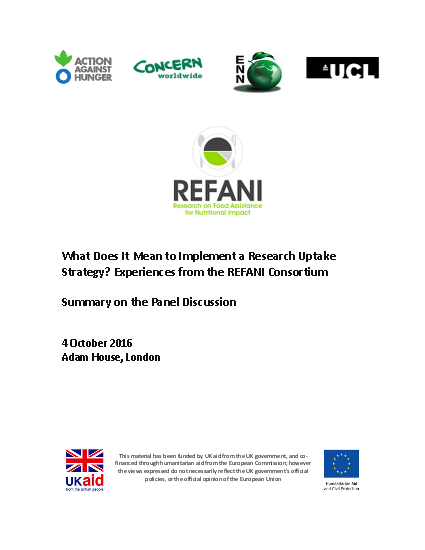
When designing and implementing a research uptake strategy, it is important to remember that communicating to wide audiences will be most effective when the whole research team participates. The Research on Food Assistance for Nutritional Impact (REFANI) project, a Consortium comprised of two operational partners (Action Against Hunger and Concern Worldwide) and two research partners (ENN and University College London), is a unique example of how a whole team has come together, in practice, to realise research uptake. REFANI is a large research project, with staff based in more than five countries around the world, all of who have been working together to implement the REFANI research uptake strategy since August 2015. Although final project results will not be available until 2017, members of the Consortium convened in London in October 2016 to share the experiences and lessons learned in uptake with the wider community of policy and practice. This discussion served as a follow-up to the panel hosted by the Department for International Development (DFID) in February 2016, which brought together colleagues from REFANI, Oxfam, the Overseas Development Institute and DFID. This earlier discussion provided attendees with various methods and ideas to overcome challenges and capitalise on opportunities that arise when implementing a research uptake strategy in humanitarian contexts.